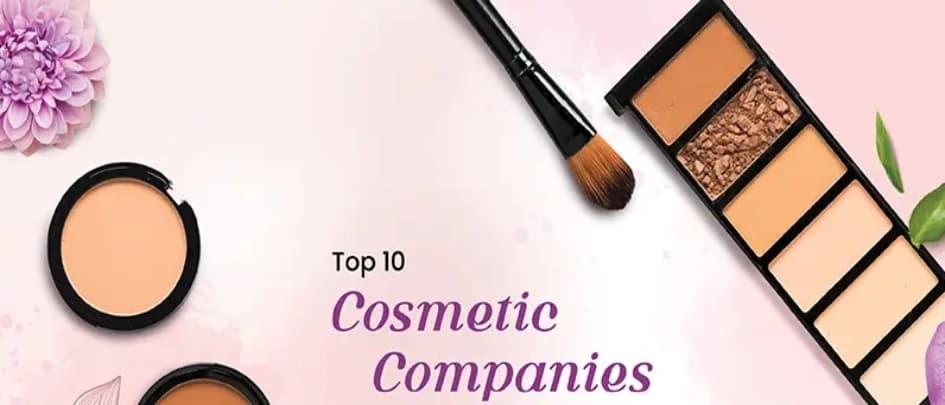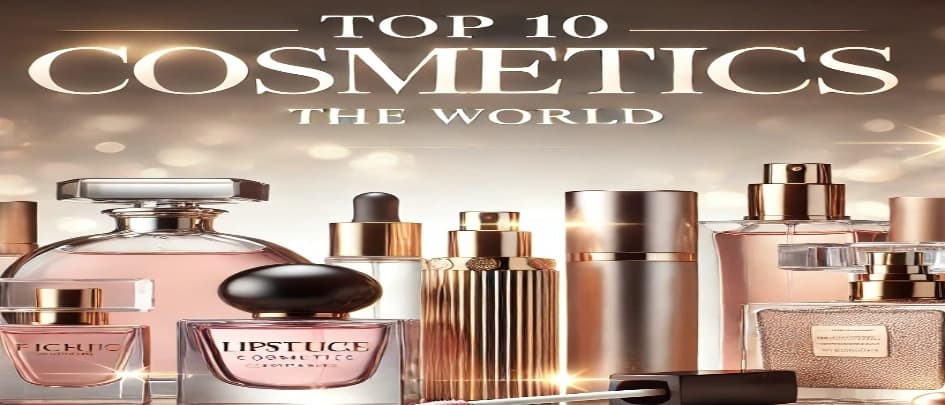
Top Cosmetic Brands In The World (In 2025)
The global cosmetics industry continues to flourish in 2025, with the market reaching new heights and showing remarkable resilience. The industry has grown from $299 billion in 2022 to an estimated $313 billion in 2023, with projections indicating it will reach $417 billion by 2030.
Ashish
Most Cosmetic Brands In The World (In 2025)
The industry is dominated by a handful of giant corporations that own multiple brands, with companies like Shiseido owning NARS, bareMinerals, Buxom, and Laura Mercier, creating an interconnected ecosystem of seemingly independent brands. Who Owns What? The Surprising Truth Behind Your Favorite Beauty Brands | Cruelty-Free Kitty.The cosmetics landscape in 2025 balances traditional powerhouses with innovative startups, sustainability initiatives, and digital-first brands that leverage social media and celebrity partnerships to capture market share in this dynamic, multi-billion-dollar industry.
1. L'Oréal (France)
Market Position: Global Leader
Notable Achievement: World's largest cosmetics company with a market value of $234.75 billion
L'Oréal maintains its position as the undisputed leader in the global cosmetics industry. The French beauty giant operates across all segments of the beauty market, from luxury to drugstore products. Their diverse portfolio includes iconic brands like Maybelline, Lancôme, Urban Decay, and YSL Beauty. In 2025, L'Oréal's CeraVe has earned recognition as the number one skincare brand worldwide, showcasing their strength in the rapidly growing skincare segment.
2. Unilever (United Kingdom/Netherlands)
Market Position: Global Powerhouse
Growth Projection: Expected 3-5% sales growth in 2025
Unilever remains a formidable force in the beauty industry with its extensive portfolio of personal care and beauty brands. The company owns beloved names like Dove, Vaseline, Axe, and Ben & Jerry's (beauty collaborations). Unilever's strength lies in its ability to cater to diverse global markets while maintaining consistent quality and innovation across its product lines.
3. Procter & Gamble (P&G) (United States)
Market Position: Integrated Strategy Leader
Focus: Performance-driven products across multiple categories
P&G has established itself as a major player through its integrated strategy focusing on products that deliver exceptional performance. The company's beauty portfolio includes SK-II, Olay, Head & Shoulders, and Pantene. P&G's commitment to research and development ensures their products remain at the forefront of beauty innovation.
4. The Estée Lauder Companies (United States)
Market Position: Prestige Beauty Specialist
2024 Revenue: $15.61 billion
Brand Portfolio: 20+ luxury brands
Despite facing some challenges with a 2% decrease in fiscal 2024 sales, The Estée Lauder Companies remains a powerhouse in prestige beauty. The company owns prestigious brands including Estée Lauder, Clinique, MAC, Tom Ford Beauty, and Le Labo. Their fragrance division showed particular strength with 14% growth, led by Tom Ford, Estée Lauder, and Le Labo brands.
5. Shiseido (Japan)
Market Position: Asian Beauty Pioneer
Specialty: Premium skincare and innovative beauty technology
Shiseido continues to be a major force in the global beauty market, particularly known for its advanced skincare formulations and innovative beauty technologies. The Japanese company has successfully expanded its presence worldwide while maintaining its reputation for high-quality, science-backed products.
6. Beiersdorf (Germany)
Market Position: Skincare Specialist
Flagship Brand: NIVEA
Beiersdorf, the parent company of NIVEA, has maintained its strong position in the global skincare market. NIVEA, with a brand value of $6.6 billion, ranks as one of the most valuable cosmetic brands worldwide. The German company's focus on accessible, effective skincare has made it a household name across more than 50 countries.
7. Coty Inc. (United States)
Market Position: Fragrance and Color Cosmetics Leader
Specialty: Celebrity partnerships and mass-market beauty
Coty has established itself as a significant player through strategic acquisitions and celebrity partnerships. The company owns popular brands like CoverGirl, Rimmel, and Sally Hansen, along with numerous fragrance licenses from luxury fashion houses.
8. Kao Corporation (Japan)
Market Position: Innovation-Driven Beauty Company
Strength: Research and development in beauty technology
Kao Corporation combines traditional Japanese beauty wisdom with cutting-edge technology to create innovative products. The company's commitment to sustainability and product efficacy has earned it a loyal global following.
9. LVMH Beauty (France)
Market Position: Luxury Beauty Conglomerate
Portfolio: Premium and ultra-luxury brands
LVMH's beauty division encompasses some of the most prestigious names in luxury beauty, including Dior, Givenchy, and Guerlain. The company's focus on ultra-luxury and exclusive products has helped it maintain premium positioning in the market.
10. AmorePacific (South Korea)
Market Position: K-Beauty Global Ambassador
Specialty: Korean skincare innovation and natural ingredients
AmorePacific has played a crucial role in bringing Korean beauty (K-Beauty) to the global market. The company's emphasis on natural ingredients and innovative skincare solutions has resonated with consumers worldwide, contributing to the global K-Beauty trend.
Beauty isn’t magic – it’s just good cosmetics Most 10

